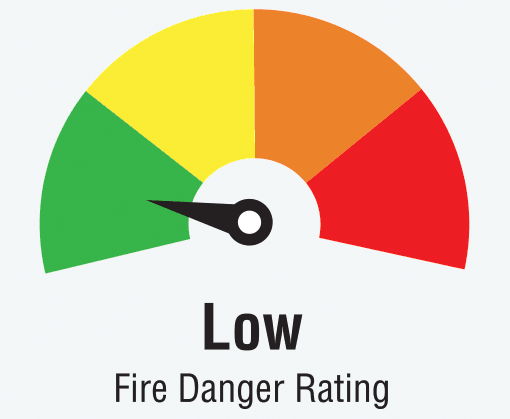
Goal: By 2030, reduce emissions from residential buildings by 20% and from large commercial buildings by 40%.
Retrofit Assist is a free program offered by the RMOW and District of Squamish to support homeowners with heating system retrofits to help make their homes more comfortable, climate friendly and energy efficient.
Retrofit Assist works with homeowners every step of the way—from the point of “just thinking about it” to “it’s paid for and complete and we’re just so happy” and everything in between. Participants in the program have the opportunity to work with a team of experts that provide a free concierge service to guide them along the journey with expert input from professional energy advisors and contractors specialising in air sealing, insulation, windows and doors, heat pump installation, and more.
The service provides:
- Step-by-step action plans from decision to completion;
- connection to Home Energy Advisors;
- contractor recommendations;
- access to financing options;
- support for filling out rebates and incentives; and
- handholding as you need it; virtual high fives too.
Learn more and register here.

Reducing emissions from existing buildings is especially challenging. While technical solutions are available, from replacing individual building components such as windows or updating furnaces, to comprehensive overhauls of the whole building, few if any jurisdictions have successfully scaled up strong action that materially reduces emissions from the existing buildings sector.
Local governments in British Columbia have limited jurisdiction over requirements for existing building retrofits. In addition, markets currently do not adequately value investments in energy efficiency, in part due to absence of transparent data on energy performance and utility costs at the time of sale. Considering these challenges, Whistler should pursue a wide range of initiatives that can facilitate investments in building energy efficiency.
While the existing buildings sector is acknowledged to be one of the tougher sectors to achieve greenhouse gas reductions, a significant opportunity lies in Whistler’s commercial buildings. Natural gas usage in commercial buildings account for over 70% of the buildings sector GHG emissions in Whistler, with a disproportionate amount coming from the largest energy-using buildings, mostly large hotels. These large buildings have more technical opportunities to reduce emissions, offer economies of scale and learning, and are better suited to value the long-term benefits from energy efficiency and lower utility and carbon costs. Annual spending in 2019 on energy use by commercial buildings alone is $22 million dollars.
Energy upgrades to the RMOW’s Meadow Park Sports Centre have reduced emissions by over 60% and also provide an attractive rate of return. Focusing on large buildings to advance proven and new technologies will be a critical strategy for reducing emissions from Whistler’s existing buildings.
Key initiatives
1. Address the barriers to retrofitting by supporting energy assessments to identify the best retrofit opportunities, costs and benefits
2. Develop a retrofit toolkit for home- and business owners, including best practice examples, incentives and rebates, information on certified trades/installers or quality assurance standards for low carbon heating systems and energy efficiency
3. Incentivize energy efficiency and low carbon heating system retrofits through financial incentives such as municipal top ups and through outreach campaigns
4. Discourage carbon-based heating of outdoor spaces (e.g. patio heaters, fossil fuel fire pits, heated driveways, etc.) through policy and/or permit changes
5. Work with operators and managers of larger commercial buildings (especially hotels) to advance this Big Move in their building(s) by sharing information on best practices and benchmarking
6. Support strata councils and property management companies with resources to accelerate transition to energy efficient retrofits.
7. Collaborate with the Province on the proposed retrofit code
8. Advance a system of voluntary and mandatory energy benchmark reporting across Whistler’s large energy consumers
9. Demonstrate RMOW leadership for municipal building efficiencies and GHG emission reductions by identifying retrofit opportunities in all corporate buildings, developing a timeline and implementing.
Your turn
Install a heat pump. Heat pumps use electricity to pull heat from outside air and transfer it into your home – even in the winter. Air-source electric heat pumps can be 300 to 400 per cent more efficient than fossil fuel sources like oil, natural gas or propane. Now is a great time to switch. The RMOW, in partnership with the Province of British Columbia, is offering incentives of up to $6,000 to switch from a fossil fuel heating system to a heat pump.
Get a home energy evaluation. The RMOW is offering rebates to Whistler homeowners for a home energy evaluation. This program will help you learn how to reduce your home’s energy use as well as your monthly energy bills.
Choose renewable gas. RNG comes from gas released by decomposing organic waste. It is a renewable and low carbon alternative to traditional natural gas. And it’s affordable too. You can select from increments of 5, 10, 25, 50 or 100 per cent RNG in your natural gas mix. The extra amount you pay is the same as buying another cup of coffee every month. Learn more about RNG and reserving your own supply.
- Between 13,200 tCO2e and 19,700 tCO2e below 2019 in 2030
- Between 13% and 15% reduction below Business as Usual in 2030*
*3% – 5% reductions come from residential buildings, and 8% –10% come from commercial buildings.
- Green building policy
- CECAP
Official Community Plan – related goals and policies
- 10.1. Goal: Municipal decision-making is well-structured to achieve energy efficiency goals and GHG reduction targets.
- 10.3. Goal: Substantially reduce GHG emissions from buildings and infrastructure.
- Lead: Planning or Building Department CLIMATE ACTION BIG MOVES STRATEGY 2020 15
- Support: Environmental Stewardship, Facility Construction Management, Corporate and Community Services (for existing buildings)
- Partnerships: BC Government, BC Hydro (for incentive programs), Canadian Homebuilders’ Association, Whistler Housing Authority
Contact
Climate and Environment
climatechange@whistler.ca



